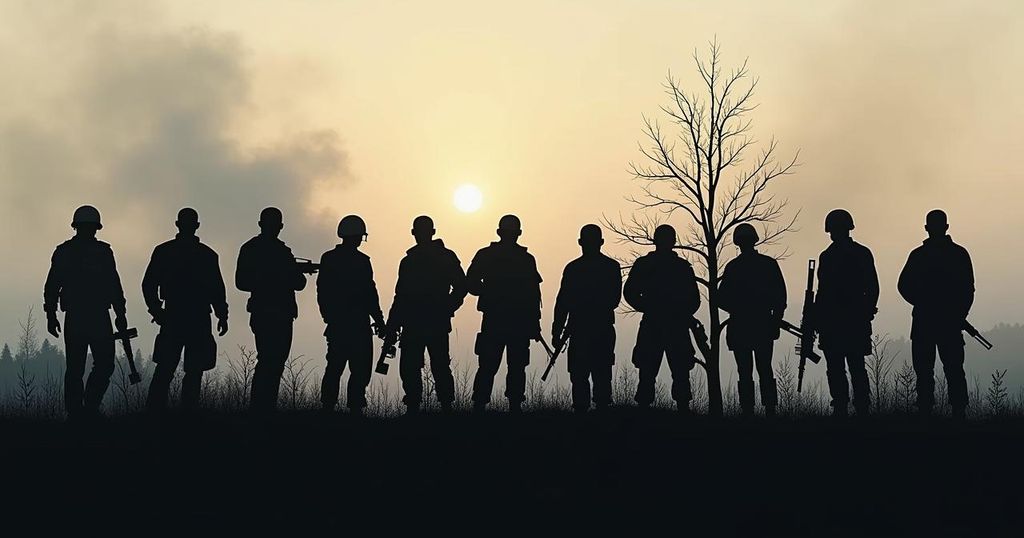Implications of the Wagner Group Rebellion on the Russian Military and Ukraine War

The Wagner Group has instigated a rebellion against Russian military leadership, capturing military headquarters and claiming defense resources have been withheld. Yevgeny Prigozhin, the leader of Wagner, has voiced criticism against the Russian military while expressing concerns over resource shortages and military effectiveness. Analysts warn that the group’s withdrawal could signify the end of this phase of Russia’s offensive in Ukraine, raising alarm over potential internal discord amid the ongoing conflict.
The Wagner Group’s recent uprising against Russian military leadership has raised significant concerns about the implications for the ongoing conflict in Ukraine. This insurrection, led by Yevgeny Prigozhin, has escalated after a series of grievances regarding the Russian Defense Ministry’s treatment of mercenaries, including accusations of withholding essential supplies and launching missile strikes on Wagner bases. Conflicts between Prigozhin and the Russian military are not new and have been intensifying, particularly given the defense ministry’s recent demands for mercenaries to formalize contracts that undermine Prigozhin’s status. The rebellion’s impact is profound, with Wagner forces claiming control over military headquarters in key urban areas and confronting Russian military resources directly. Prigozhin has publicly criticized the inadequacies within the military’s logistical support, stating, “These are someone’s fathers and someone’s sons… The scum that doesn’t give us ammunition will eat their guts in hell.” He has also lamented, “Wagner ran out of resources to advance in early April, but we’re advancing despite the fact that the enemy’s resources outnumber ours fivefold.” The Wagner Group’s sustained involvement in Bakhmut, a focal point of conflict, has raised questions about the future of Russian assaults in Ukraine if their forces were to withdraw. Analysts suggest that Prigozhin’s removal from the battlefield may lead to a decisive reduction in Russian military efficacy in Ukraine. Yohann Michel of the International Institute for Strategic Studies has observed, “If he’s removed from the front line… I think we can say it is the end of this phase of the offensive for Russia.” Moreover, U.S. officials have noted the potential risks associated with Prigozhin’s replacement given his effectiveness, underscoring the complexity of the situation on the ground amidst the conflict with Ukraine. As Wagner forces advance towards Moscow, capturing military installations and positioning themselves as a rival to the state, the probability of an internal power struggle looms, hinting at a precarious intersection of civil discord and military failure for Russia in Ukraine. This internal strife within the Russian military establishments could potentially mark a significant turning point in the Ukraine war, signaling a profound change in the dynamics of the conflict and the Russian state’s military capabilities.
The Wagner Group, a private military company known for its operations in Ukraine, Syria, and Africa, has become a contentious player within Russia’s military framework. Established to circumvent traditional military structures, the organization formed close ties with Russian President Vladimir Putin, yet it has increasingly found itself at odds with the conventional military. Tensions have been exacerbated by the Russian Defense Ministry’s push for mercenaries to formalize their roles, which threatens Prigozhin’s leverage and the operational sustainability of the Wagner forces. The conflict has recently escalated as internal friction has emerged amidst the ongoing counter-offensive from Ukrainian forces.
In conclusion, the rebellion initiated by the Wagner Group against the Russian military presents a critical juncture in the regional power dynamics, with potential consequences for the ongoing war in Ukraine. The internal disputes within the Russian military establishment may well undermine its operational effectiveness during significant military engagements. The situation warrants careful observation as the outcomes of these conflicts may directly impact the future of both Russian military strategy in Ukraine and the broader geopolitical landscape.
Original Source: www.livemint.com







